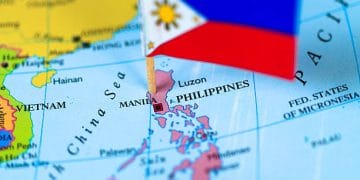The Philippines may face potential sanctions from the International Criminal Court (ICC) if it does not cooperate with the court’s investigation into the anti-drug campaign under former President Rodrigo Duterte, a Manila lawmaker cautioned on Monday.
Representative Joel Chua highlighted the importance of the Philippines maintaining its commitments to international bodies, citing the cooperation agreement between the United Nations (UN) and the ICC. He expressed concerns about the risks to the country’s international relationships at a news conference.
President Ferdinand R. Marcos Jr. has stated that his administration will not cooperate with the ICC’s inquiry into the alleged extrajudicial killings associated with Duterte’s drug war. Despite this, Chua suggested that the Philippines could still engage with the ICC indirectly through the Commission on Human Rights (CHR), an independent constitutional entity.
Chua, who is also a lawyer, noted that the CHR has the authority to investigate human rights violations. He referenced Republic Act 9851, which empowers the Regional Trial Court to oversee crimes against humanity and war crimes, aligning with the ICC’s focus.
The lawmaker also addressed concerns regarding the Philippines’ withdrawal from the ICC in 2019, clarifying that the ICC retains jurisdiction over crimes committed while the country was a member. He mentioned that coordination between the ICC and the CHR could still be feasible.
Chua emphasized the Philippines’ obligations as a sovereign state and a founding member of the UN to adhere to international laws and treaties. He warned of the potential diplomatic repercussions, including becoming an international pariah, if the Philippines obstructs the ICC’s investigation or denies entry to its personnel.
Find the latest supply chain report news at The Supply Chain Report. For international trade tools, see ADAMftd.com.
#ICCSanctions#PhilippinesJustice#InternationalLaw#HumanRightsPH#SupplyChainNews
















